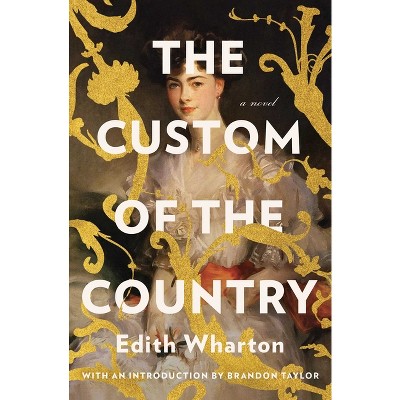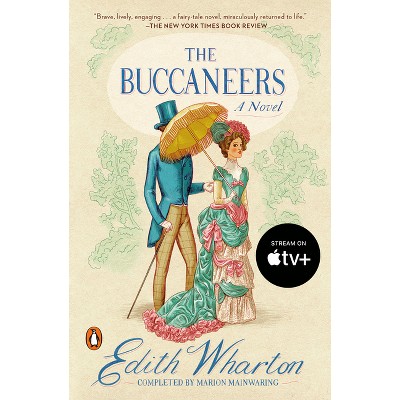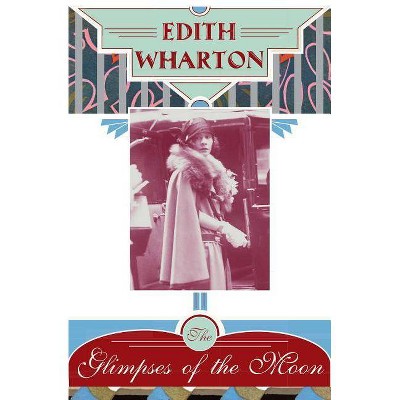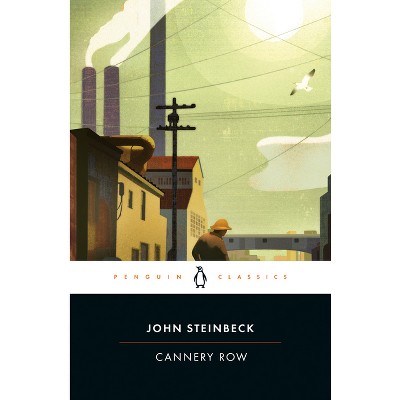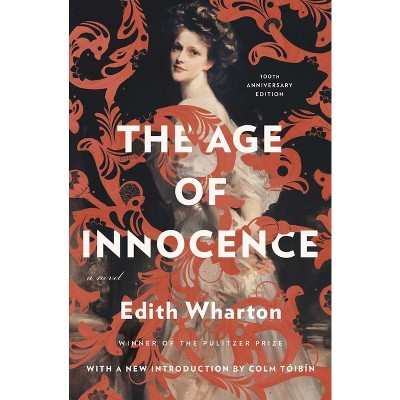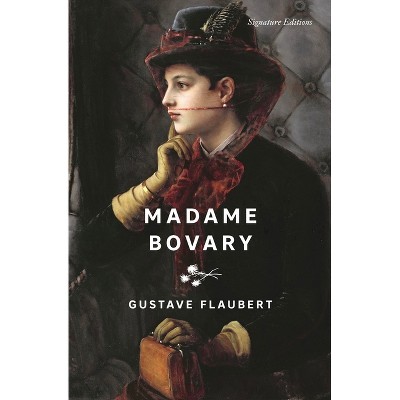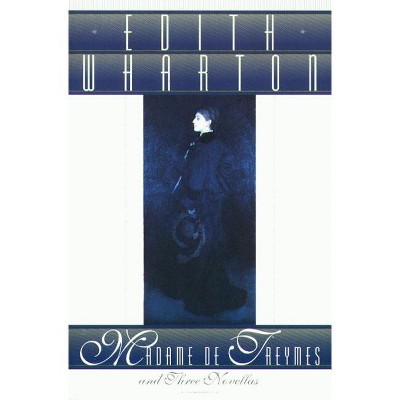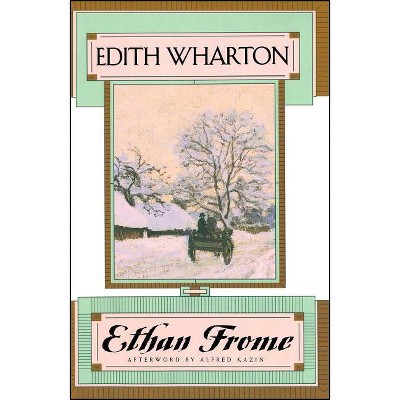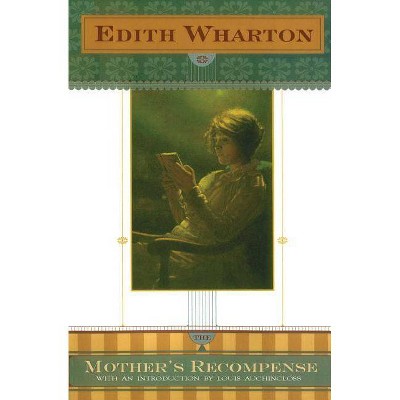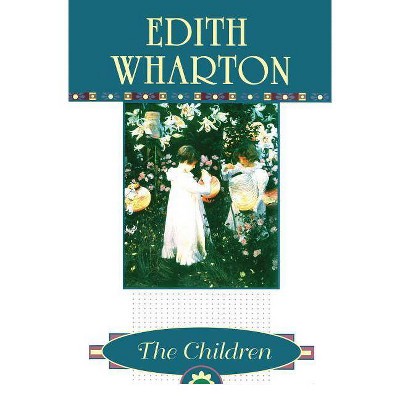Sponsored

Old New York - by Edith Wharton (Paperback)
$10.56Save $8.44 (44% off)
In Stock
Eligible for registries and wish lists
Sponsored
About this item
Highlights
- Four novellas by the Pulitzer Prize-winning author of The Age of Innocence, brilliantly capturing New York of the 1840s, '50s, '60s, and '70s.
- About the Author: America's most famous woman of letters, and the first woman to win the Pulitzer Prize, Edith Wharton was born into one of the last "leisured class" families in New York City, as she put it, in 1862.
- 320 Pages
- Fiction + Literature Genres, Classics
Description
About the Book
From the Pulitzer Prize-winning author of The Age of Innocence come four masterly short novels of New York during the 19th century, revealing with subtle irony the customs and tribal codes that ruled Society.Book Synopsis
Four novellas by the Pulitzer Prize-winning author of The Age of Innocence, brilliantly capturing New York of the 1840s, '50s, '60s, and '70s. The four short novels in this collection are set in the New York of the 1840s, '50s, '60s, and '70s, each one revealing the codes and customs that ruled society, portrayed with the keen style that is uniquely Edith Wharton's. Originally published in 1924 and long out of print, these tales are vintage Wharton, dealing boldly with such themes as infidelity, illegitimacy, jealousy, the class system, and the condition of women in society. Included in this remarkable quartet are False Dawn, which concerns the stormy relationship between a domineering father and his son; The Old Maid, the best known of the four, in which a young woman's secret illegitimate child is adopted by her best friend--with devastating results; The Spark, about a young man's moral rehabilitation, which is "sparked" by a chance encounter with Walt Whitman; and New Year's Day, an O. Henryesque tale of a married woman suspected of adultery. Old New York is Wharton at her finest.Review Quotes
Gore Vidal
There are only three or four American novelists who can be thought of as "major" -- and Edith Wharton is one.
About the Author
America's most famous woman of letters, and the first woman to win the Pulitzer Prize, Edith Wharton was born into one of the last "leisured class" families in New York City, as she put it, in 1862. Educated privately, she was married to Edward Wharton in 1885, and for the next few years, they spent their time in the high society of Newport (Rhode Island), then Lenox (Massachusetts) and Europe. It was in Europe that Wharton first met Henry James, who was to have a profound and lasting influence on her life and work. Wharton's first published book was a work of nonfiction, in collaboration with Ogden Codman, The Decoration of Houses (1897), but from early on, her marriage had been a source of distress, and she was advised by her doctor to write fiction to relieve her nervous tension. Wharton's first short stories appeared in Scribners Magazine, and though she published several volumes of fiction around the turn of the century, including The Greater Inclination (1899), The Touchstone (1900), Crucial Instances (1901), The Valley of Decision (1902), Sanctuary (1903), and The Descent of Man and Other Stories (1904), it wasn't until 1905, with the publication of the bestselling The House of Mirth, that she was recognized as one of the most important novelists of her time for her keen social insight and subtle sense of satire. In 1906, Wharton visited Paris, which inspired Madame de Treymes (1907), and made her home there in 1907, finally divorcing her husband in 1912. The years before the outbreak of World War I represent the core of her artistic achievement, when Ethan Frome (1911 ), The Reef (1912), and The Custom of the Country (1913) were published. During the war, she remained in France organizing relief for Belgian refugees, for which she was later awarded the Legion of Honor. She also wrote two novels about the war, The Marne (1918) and A Son at the Front (1923), and continued, in France, to write about New England and the Newport society she had known so well in Summer (1917), the companion to Ethan Frome, and The Age of Innocence (1920), for which she won the Pulitzer Prize. Wharton died in France in 1937. Her other works include Old New York (1924), The Mother's Recompense (1925), The Writing of Fiction (1925), The Children (1928), Hudson River Bracketed (1929), and her autobiography, A Backward Glance (1934).Dimensions (Overall): 7.98 Inches (H) x 5.44 Inches (W) x .72 Inches (D)
Weight: .6 Pounds
Suggested Age: 22 Years and Up
Number of Pages: 320
Genre: Fiction + Literature Genres
Sub-Genre: Classics
Publisher: Scribner Book Company
Format: Paperback
Author: Edith Wharton
Language: English
Street Date: March 1, 1995
TCIN: 81549529
UPC: 9780020383147
Item Number (DPCI): 247-12-5751
Origin: Made in the USA or Imported
If the item details aren’t accurate or complete, we want to know about it.
Shipping details
Estimated ship dimensions: 0.72 inches length x 5.44 inches width x 7.98 inches height
Estimated ship weight: 0.6 pounds
We regret that this item cannot be shipped to PO Boxes.
This item cannot be shipped to the following locations: American Samoa (see also separate entry under AS), Guam (see also separate entry under GU), Northern Mariana Islands, Puerto Rico (see also separate entry under PR), United States Minor Outlying Islands, Virgin Islands, U.S., APO/FPO
Return details
This item can be returned to any Target store or Target.com.
This item must be returned within 90 days of the date it was purchased in store, shipped, delivered by a Shipt shopper, or made ready for pickup.
See the return policy for complete information.
